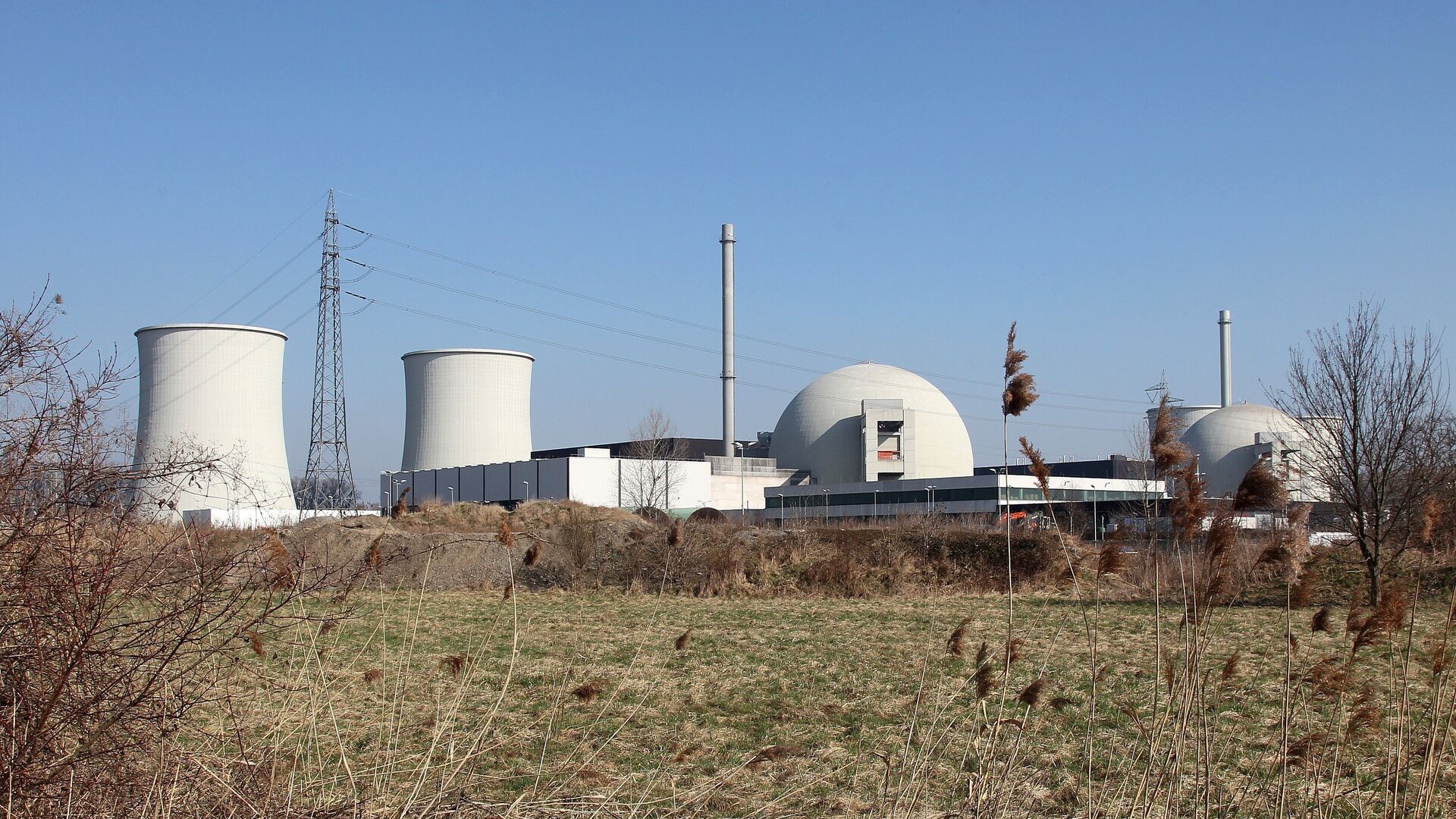https://sputnikglobe.com/20230414/scientists-ask-scholz-to-keep-german-nuclear-plants-running-past-2023-1109537829.html
Scientists Ask Scholz to Keep German Nuclear Plants Running Past 2023
Scientists Ask Scholz to Keep German Nuclear Plants Running Past 2023
Sputnik International
Germany’s scientific community urged Chancellor Olaf Scholz on Friday to reconsider pulling the plug on the remaining three nuclear power plants as the country continues to suffer from rising energy costs.
2023-04-14T16:11+0000
2023-04-14T16:11+0000
2023-07-31T16:57+0000
world
germany
olaf scholz
nuclear power plant
https://cdn1.img.sputnikglobe.com/img/103816/96/1038169627_0:205:3888:2392_1920x0_80_0_0_4b4e4fe6475352d16fda5e7a2099a288.jpg
"In view of the threat that climate change poses to life on our planet and the obvious energy crisis in which Germany and Europe find themselves due to the unavailability of Russian natural gas, we call on you to continue operating the last German nuclear power plants," the open letter read. Germany was to phase out nuclear plants by 2022 but the global energy crunch that began in 2021 and continued through last year led the government to push the deadline to April 15, 2023. Natural, environmental and climate sciences experts estimated that Europe’s switch to coal last year caused Germany to emit an extra 40 million metric tons of carbon dioxide and could add a further 38 million tons this year. By keeping nuclear plants running past 2023, Germany will save up to 30 million tons of CO2 per year and supply a quarter of German households with low-emission electricity, scientists said. The letter contrasted the German energy policy with that of its European allies, many of whom have opted to keep nuclear power plants open. France, the United Kingdom, Poland, the Czech Republic and the Netherlands plan to bring new plants online, while Belgium and Switzerland are looking to extend the operating licenses of existing ones.
https://sputnikglobe.com/20221011/greta-thunberg-calls-shutdown-of-german-nuclear-power-plants-very-bad-idea-1101740480.html
germany
Sputnik International
feedback@sputniknews.com
+74956456601
MIA „Rossiya Segodnya“
2023
Sputnik International
feedback@sputniknews.com
+74956456601
MIA „Rossiya Segodnya“
News
en_EN
Sputnik International
feedback@sputniknews.com
+74956456601
MIA „Rossiya Segodnya“
Sputnik International
feedback@sputniknews.com
+74956456601
MIA „Rossiya Segodnya“
german nuclear power plants, german nuclear power phase out
german nuclear power plants, german nuclear power phase out
Scientists Ask Scholz to Keep German Nuclear Plants Running Past 2023
16:11 GMT 14.04.2023 (Updated: 16:57 GMT 31.07.2023) MOSCOW (Sputnik) - Germany’s scientific community urged Chancellor Olaf Scholz on Friday to reconsider pulling the plug on the remaining three nuclear power plants as the country continues to suffer from rising energy costs.
"In view of the threat that climate change poses to life on our planet and the obvious energy crisis in which Germany and Europe find themselves due to the unavailability of Russian natural gas, we call on you to continue operating the last German nuclear power plants," the open letter read.
Germany was to phase out nuclear plants by 2022 but the global energy crunch that began in 2021 and continued through last year led the government to push the deadline to April 15, 2023.
Natural, environmental and climate sciences experts estimated that Europe’s switch to coal last year caused Germany to emit an extra 40 million metric tons of carbon dioxide and could add a further 38 million tons this year.

11 October 2022, 21:59 GMT
By keeping nuclear plants running past 2023, Germany will save up to 30 million tons of CO2 per year and supply a quarter of German households with low-emission electricity, scientists said.
The letter contrasted the German energy policy with that of its European allies, many of whom have opted to keep nuclear power plants open. France, the United Kingdom, Poland, the Czech Republic and the Netherlands plan to bring new plants online, while Belgium and Switzerland are looking to extend the operating licenses of existing ones.



